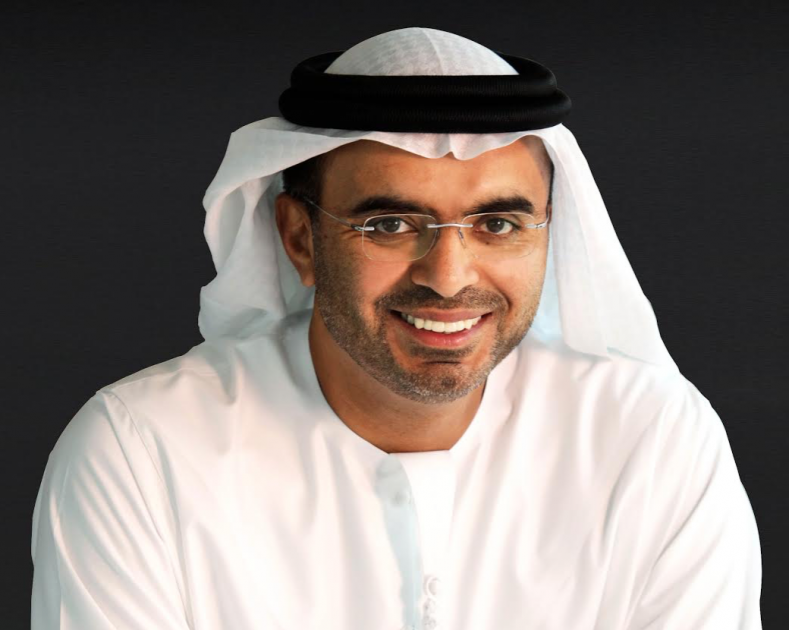
Deadline for Islamic Economy Award 2016 extended till Thursday, August 11
Due to popular demand, the Dubai Islamic Economy Development Centre (DIEDC) has extended the deadline for the 2016 Islamic Economy Award until August 11.
There will be no more extensions after August 11, the centre warns, however, and the winners will be announced at the Global Islamic Economy Summit (GIES) held on October 11 and 12, 2016.
Launched in 2013 under the patronage of His Highness Sheikh Mohammed bin Rashid Al Maktoum, Vice President and Prime Minister of the UAE and Ruler of Dubai, the Islamic Economy Award – a key DIEDC initiative – seeks to recognise sharia-compliant innovative, world-class business concepts that contribute to the social and economic welfare of the community. Considered an international benchmark in promoting best practices in Islamic economy, IEA is organised by Dubai Islamic Economy Development Centre in cooperation with Dubai Chamber of Commerce and Industry, while Thomson Reuters manages the Award.
His Excellency Majid Saif Al Ghurair, Chairman, Dubai Chamber and Board Member of the Dubai Islamic Economy Development Centre said: “The public reaction to the Islamic Economy Award has been overwhelmingly positive; individuals and business have been increasingly heeding the call of His Highness Sheikh Mohammed bin Rashid Al Maktoum, Vice President and Prime Minister of the UAE and Ruler of Dubai, to turn Dubai into a capital of Islamic economy.”
HE added: “To that end, the application deadline for the Islamic Economy Award has been extended to give a chance for the largest number of qualified candidates who have made their mark on the Islamic economy – and played their part in pushing it forward – to come forward, share their success stories, and inspire countless others.”
The jury this year includes four new members: Dr Mohammed Daud Bakar, Chairman of Shariah Advisory Council at Bank Negara Malaysia & Securities Commission (Malaysia), Jad Toubayly, Director of Fund Placement & Corporate Finance Division at Greenstone Equity Partners (UAE), Zulkifly Said, Director General of the Islamic Tourism Centre of Malaysia (Malaysia), and Abdullah Turkistani, Director of Islamic Economics Centre (Saudi Arabia).
Al Ghurair added: “The award serves to recognise the hard work and achievements of pioneers in all fields of Islamic economy and encourage them – and others – to continue to strive for excellence in their endeavours.”
In its first three editions, the Islamic Economy Award served as the anchor event for the Global Islamic Economy Summit (GIES). This practice will continue with the IEA 2016. The award complements the mandate of GIES through recognising initiatives that have contributed to the social and economic welfare of the Muslim population worldwide.
For his part, Abdulla Mohammed Al Awar, CEO of the Dubai Islamic Economy Development Centre, said: “The Islamic economy continues to grow and attract the rising interest of financial institutions and investors from around the world, who are keen on developing an ecosystem that facilitates the advancement of its various sectors. The role of the Islamic Economy Award becomes even more significant in highlighting the innovations and outstanding initiatives that have made a fundamental difference in driving this growth. We are confident that the Islamic Economy Award 2016 will draw a superior contribution to reflect this increased awareness among entrepreneurs and economic entities from the private and public sectors of the integrated Islamic economic system that has proven to be the real engine for development – eventually leading to desired economic security for the world at large.”
Nadim Najjar, Managing Director of Thomson Reuters, Middle East and North Africa, said: “The Islamic Economy Awards recognises the world-class business initiatives that are shariah-compliant. Innovation has become an integral part of the global Islamic economy, enabling businesses to reach large markets, directly, quickly and economically. The award is inspired by these emerging trends, and showcases entrepreneurs that are driving innovation across different segments of the global Islamic economy.”
The eight key categories of the Islamic Economy Award 2016 include financial and economic categories, such as Islamic Finance, which comprises Islamic microfinance, SME and venture capital financing, corporate or sovereign sukuk issuing entities, takaful and re-takaful, Islamic banking, and Islamic fund management; as well as SME Development (technology, incubation, training, infrastructure and SME ecosystem development). There’s also the Food and Health category, i.e. agriculture, ingredients and manufacturing, retail, logistics, research, product development and food services, cosmetics, personal care, and pharmaceuticals.
This in addition to categories pertaining to culture, namely, Media (Entertainment shows, publications, social media, and mobile apps), Hospitality and Tourism (Family-friendly travel, meetings, incentives, conferences and exhibitions (MICE), medical tourism, and Hajj/Umrah), and Islamic Art (artists, architects, fashion and jewellery designers).
Lastly, the two remaining categories are Waqf and Endowments, including innovative solutions, government-managed and private awqaf/waqf management services, as well as cross-border waqf; and Islamic Economy Knowledge Infrastructure, which is to say research and educational institutions or initiatives, compliance and standardisation.
In addition to the abovementioned eight categories, a ‘Lifetime Achievement Award’ will recognise an outstanding business leader for demonstrating inspired leadership while positively influencing the Islamic economy and making an impactful contribution to the sector.



























